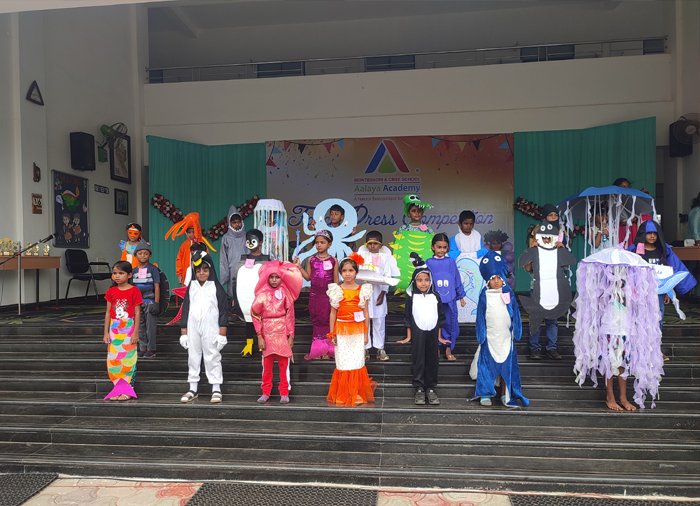Primary (Grade 1 to 5)
- Home
- /
- Academics

At Aalaya, Grades 1 to 5 are not just milestones; they are movements in a grand symphony of learning. Join us in this educational opus, where every child is a note in the melody of brilliance.
From Grade 1 to Grade 5, the importance of education threads through each academic year. It is not just about textbooks and exams; it is about nurturing minds, fostering curiosity, and preparing students for a future where knowledge is power. At every grade level, education is the key that unlocks doors, builds bridges, colours canvases, empowers minds, and guides growth.
In Grade 1, education is the magical key that unlocks the door to wonder. It is the first step into a world of letters, numbers, and endless possibilities through foundational subjects - The Gateway to Wonder
Grade 2 sees the construction of bridges between imagination and knowledge. Education becomes the bridge that connects the realms of storytelling, problem-solving, and creative expression. – Building Bridges with Knowledge
Grade 3, education transforms into a canvas of discovery. It is the paintbrush that colours their understanding of the world. Beyond textbooks, education becomes an exploration of science, history, and the interconnectedness of our global tapestry – The Canvas of Discovery
In Grade 4, education evolves into a powerful tool. It is the force that empowers young minds with critical thinking, problem-solving, and a deeper understanding of concepts – Empowering Minds.
As students reach Grade 5, education becomes a beacon of growth and self-discovery. It is the guiding light that illuminates the way forward. Here, students grasp that education is the compass that directs them toward becoming responsible, compassionate, and knowledgeable individuals. – Beacon of Growth
In the CBSE curriculum from Grade 1 to Grade 5, the examination pattern is thoughtfully designed to be age-appropriate encouraging a comprehensive understanding of subjects. Here's a brief overview of the exam pattern:
Continuous assessment through class activities, projects, and informal evaluation.
Assessments focus on understanding concepts rather than rote memorization.
Evaluation encompasses not only academic knowledge but also critical thinking, analytical skills, and application of concepts.
